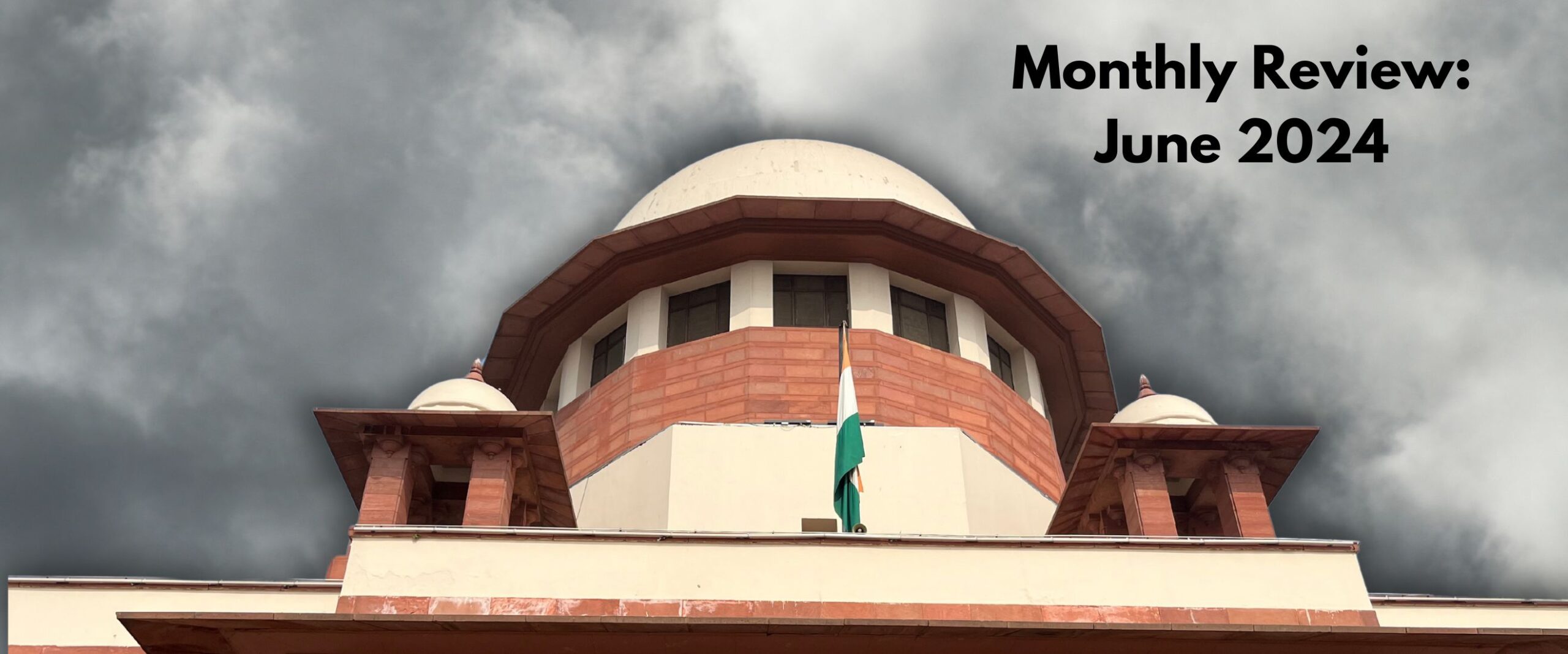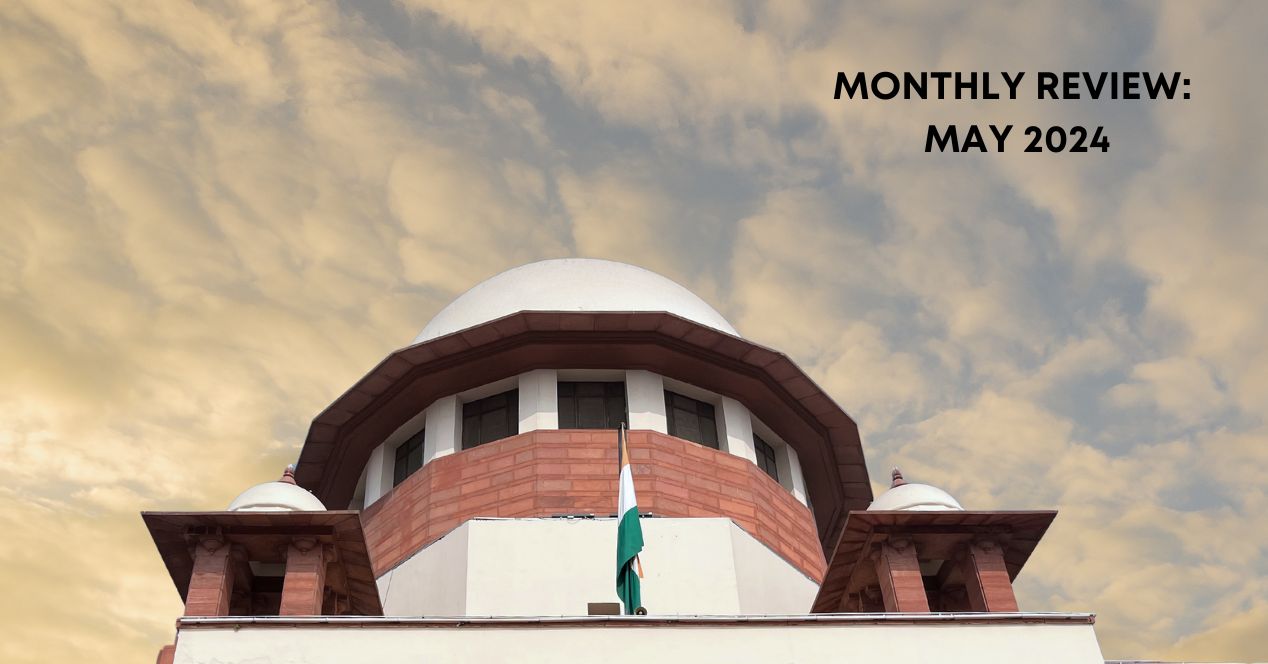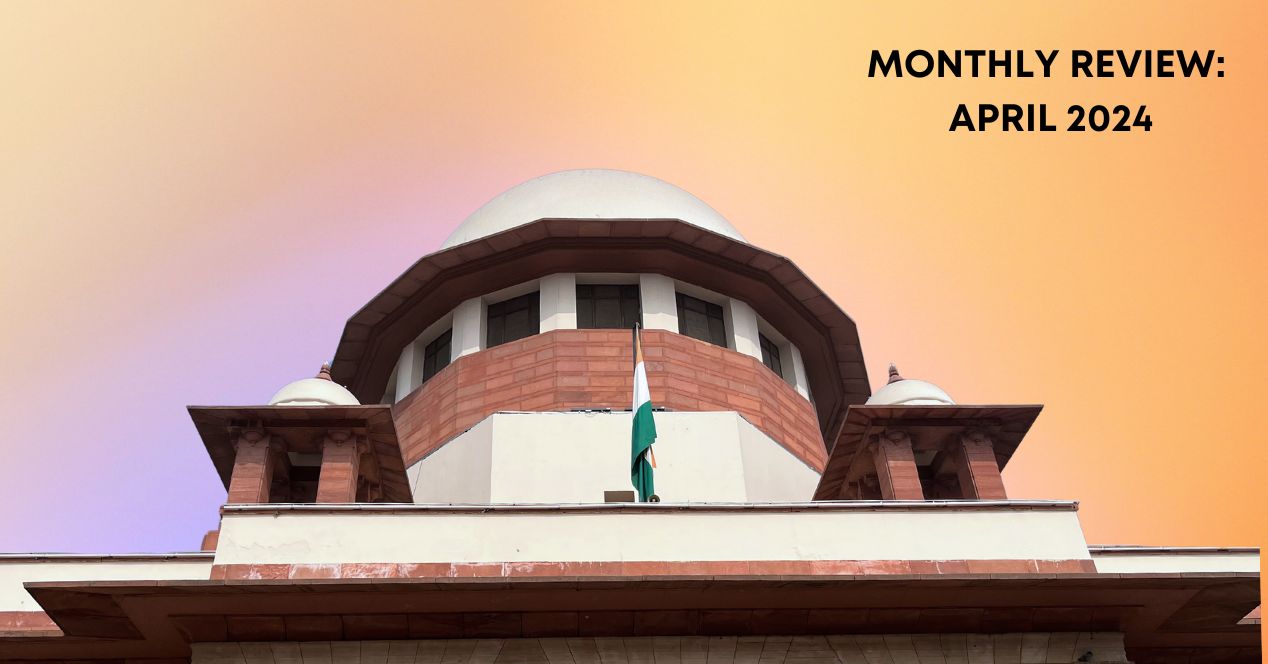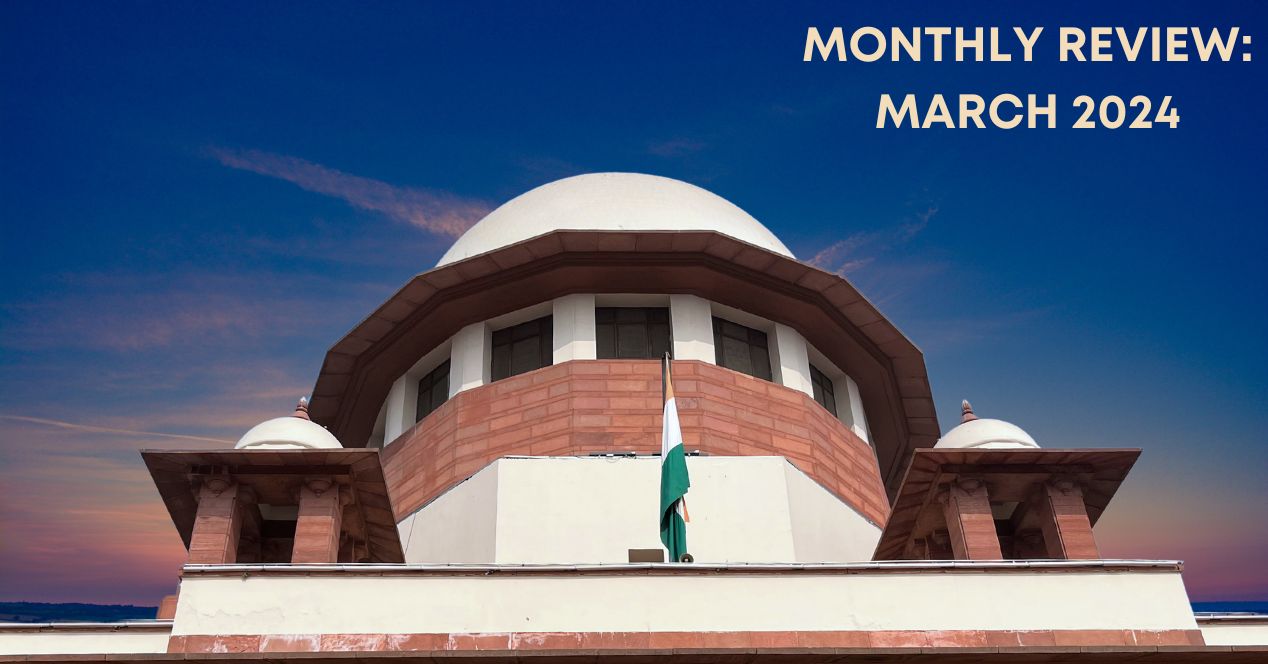Analysis
Monthly Review: June 2024
During its vacation month, we looked back at the Court's summer session, and launched a special series on 75 years of the top Court

The Supreme Court broke for seven-week summer vacation on 20 May 2024. June was the first and only full month of vacation for the Supreme Court. Unsurprisingly therefore, the month was relatively less busy for the Court. Nonetheless, three Vacation Benches assembled everyday to hear urgent matters throughout the vacation period.
Notably, a Vacation Bench in June heard Delhi Chief Minister Arvind Kejriwal plea against the Delhi High Court’s decision to impose a stay on his bail.
During this long break, we at the Supreme Court Observer, took the time to sit and reflect on the Court’s work this past term and analyse some of its judgements. We also launched a special series to celebrate 75 years of the Supreme Court this June. Read along for glimpses of this.
CBI serves, Kejriwal withdraws
On 26 June 2024, Delhi Chief Minister Arvind Kejriwal withdrew his plea from the Supreme Court challenging an interim stay against his bail order by the Delhi High Court. In an interim stay order, the Delhi High Court had prevented his release a day after a trial court granted him bail. The bail was granted approximately three months after he was arrested in the Delhi Excise Policy case.
On 24 June, a Vacation Bench of Justices Manoj Misra and S.V. Bhatti heard Kejriwal’s plea. Even as they found the High Court’s decision to stay bail “unusual” they listed the case to be heard on 26 June to read the full High Court order.
On 25 June, the Delhi High Court maintained the interim stay on Kejriwal’s bail. The next morning, minutes before Kejriwal’s hearing in the Supreme Court, he was arrested by the Central Bureau of Investigation in the excise policy case.
Senior Advocate A.M. Singhvi, appearing for Kejriwal, requested the Bench to allow him to withdraw the petition. He expressed his intention to file a fresh petition challenging both the interim order (21 June) and the subsequent stay order (25 June) of the Delhi High Court in a fresh Special Leave Petition. Kejriwal will likely knock the doors of the Court again once it returns after summer vacation on 8 July 2024.
All’s not over for AAP
An issue concerning the Aam Aadmi Party’s office in Delhi resurfaced this June. The land where AAP’s office is situated, was allotted to the Delhi High Court for an expansion project. The Delhi High Court argued that it was provided the land in September 2020. The expansion project was stalled due to an alleged “encroachment” by the AAP. On 4 March 2024, the Supreme Court had granted time till 15 June 2024 for AAP to vacate the premises.
On 11 June 2024, a Vacation Bench comprising Justices Vikram Nath and Sandeep Mehta extended AAP’s deadline till 10 August 2024.
Pulling a last minute switch
In Delhi Metro Rail Corporation Limited v Delhi Airport Metro Express Private Limited (2024), the Supreme Court in a curative petition overturned an arbitral award of ₹ 7,600 crores to be paid by the Delhi Metro Rail Corporation (DMRC) to the Delhi Airport Metro Express Private Limited (DAMPEL) on the grounds of ‘patent illegality.’
Practitioners have argued that this decision is likely to spook domestic and private players from doing business with the government. The decision also stains a largely popular stance about India being arbitration-friendly.
Black coats excluded, are white coats next?
On 14 May 2024, in Bar of Indian Lawyers v D.K. Gandhi, a Division Bench of the Supreme Court held that advocates would not be liable under the Consumer Protection Act, 2019 for deficiencies in service. While doing so, the Court asked for the review of Indian Medical Association v V.P. Shantha (1995), where the Supreme Court had held that doctors were liable under consumer protection laws. In our commentary of the D.K. Gandhi judgement, Journalist V. Venkatesan writes that the call to reconsider V.P. Shantha was unnecessary as it would undo a decision that has held the field for almost three decades on doctors’ liability.
Whose is it? Is it Mine? No, it’s Mine
In March 2024, a nine-judge Constitution Bench heard arguments on the state government’s power to tax mines and minerals. The issue deals with distinct entries of the Union and State List that deal with development and taxation of mines and minerals. The arguments dealt with the extent of the Union’s control over the state’s power to tax mines and minerals. In our argument summary, we have compiled and simplified all the arguments in this case made by the Union, state governments, and mining companies—arguably the most affected group by this case.
“Oh, when I look back now, that summer seemed to last forever”
This June, we at the Supreme Court Observer, took a minute to assess the Court’s activity this past quarter. The Supreme Court’s Summer Session (between the period of 1 April to 20 May 2024) was dominated by two nine-judge bench cases. The decisions in these cases could have significant ramifications on the regulation of industrial alcohol and the nature of private property. We also looked at the Court’s activity during the mammoth seven-phase General Election.
Do check out our comprehensive Summer Session Review here.
Appointment Tussle…since 1950
On 4 June 2024, the Bharatiya Janata Party-led National Democratic Alliance formed the government for the third consecutive time. A long-standing tussle between the NDA government and the judiciary has been on the topic of appointments to the higher judiciary. In our weekend newsletter, we discussed how this tussle will play out in the BJP’s third term.
The scuffle between the Court and the government has been around since the inception of the Indian republic. The first Chief Justice of India, H.J. Kania and the Prime Minister Jawaharlal Nehru had a fraught relationship with each other. We explore this dynamic here.
Burnt into memory
“If I find the Constitution being misused, I shall be the first to burn it,” said Dr B.R. Ambedkar in the Rajya Sabha in 1953. Over the years, the doctor’s statement has often been quoted by several scholars and critics, often, in a different context.
Scholar Anurag Bhaskar in his recent book “The Foresighted Ambedkar” explores the context of this often quoted or “misquoted” statement.
Read an excerpt of the book here.
Comparing the Apexes
This summer, we also had a chance to see how the Supreme Court of India operates in comparison to other top court’s in South Asia. What are the types of cases they hear? How many cases remain pending? How are judges appointed? Find out here.
Shine on you diamond
The Supreme Court turned 75 years old this year. To mark the occasion, we announced a special series celebrating the Court’s cultural prominence. The series includes stories on art, architecture, literature, and a lot more. Check out our first set of articles and be on the lookout for more interesting stories from the Court’s diamond studded corridors. Our current series includes stories about the architecture of the Supreme Court, the depiction of courts in cinema, and an inaugural address delivered by the first Chief Justice of India.




